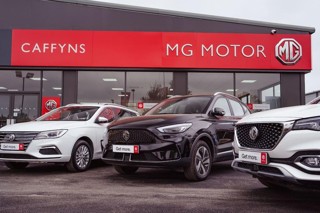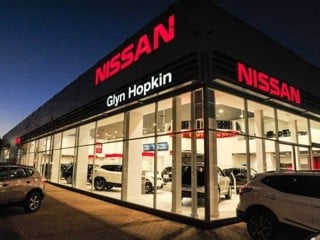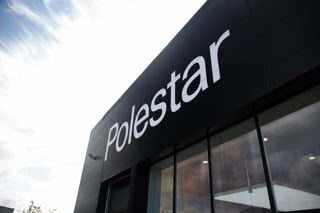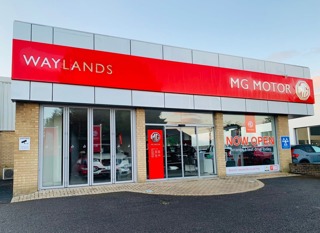So said Nigel McMinn, the chief operating officer of Lookers, as he addressed a discussion about the recent review of the motor finance sector by the Financial Conduct Authority (FCA) at an AM100 round table meeting just a week before it emerged the regulator was investigating his business.
The FCA’s investigation into the AM100’s second-placed retail group’s sales process caused its share price to drop 20% following the June 25 announcement via the London Stock Exchange.
Lookers had itself alerted the FCA to “some control issues in the sales process in the group’s regulated activities which will require an improvement plan to be implemented”, following an independent internal review.
Speaking at the Birmingham Hilton Metropole on June 19, McMinn said: “What we’re finding is that we’re taking a sales process designed 20 years ago and we have tried to fine-tune it and make it more flexible. We have lashed on lots of terms and conditions and disclaimers and now you need 20 or more signatures.
“Make something that complex and the more likely it is for individuals to make mistakes.
“We are currently exploring how we can make our sales process simpler and inherently more compliant.”
McMinn said he felt automotive retail still had some way to go before it truly put customers first, as the FCA requires.
Dale Wyatt, the managing director of Suzuki GB, said the key to complying with the FCA was adapting to its cultural view of how finance sales should be handled, suggesting that more prescribed guidelines may be more appropriate. He added: “In a sense, that’s what’s wrong with the FCA.”
Adam Mepham, motor sales director at Barclays Partners Finance, which announced on July 12 that it plans to exit the motor finance market, said Barclays would not take the lead on commission disclosure, but added: “One thing the FCA has been particularly unhappy about has been non-disclosure, particularly with initial disclosure documents (IDD), which show the panel of lenders you may be working with.
“Nobody knows what the FCA will finally rule, but my feeling is (commission disclosure) is going to come.”
Commenting on changes to the sales process, Mepham added: “There’s far more onus on the lenders to police the sales process.”
Wyatt added: “At Suzuki, we have a mantra that things have to be ‘fast, easy and fun’. The reality is that the FCA isn’t fast, it isn’t easy and it certainly isn’t fun.
“We need to get user experience to a point where it can at least be easy.”
Swansway director John Smyth said his major practical concern for the finance sector is that negative equity is becoming a big issue 18 months after the group took the decision to drop its APR from 13.9% to 9.9% and offer salesman £50 per sale for correctly completing their FCA paperwork.
“It’s an unusual situation to find that one of our customers isn’t in negative equity,” he said. “We’re pulling some people out of some big holes right now.”
Peter Smyth said the cost of voluntary terminations was now costing Swansway “£80,000 to £90,000 a month, or £1 million a year”.
He said: “It’s a real issue because we seem to be earning more and more finance commission but what we’re getting at one end they are taking away at the other.”
Peter Smyth said he felt the situation had been created by premium manufacturers’ push of high volumes into the UK market, a situation he hoped might abate when the UK leaves the EU.
Online car retail
Everyone around the debating table agreed that the push towards online new and used car sales was something they needed to understand and embrace in favour of a better customer journey.
The faster car retailers find their own solution to the challenge of online new car sales, the faster they will be able to tackle the threat of emerging disruptors in the marketplace, according to McMinn.
While those around the table had made mixed progress towards their own online sales solutions, McMinn said Lookers had redeveloped its own website and was now looking into its own new car retail solution.
While he felt it was clear that manufacturers believe they “might be able to cut cost out” of the distribution chain, he said: “I think we have to accept that online might not have to be a direct route to market.”
But calling for the faster creation of retailer-led solutions in an attempt to compete with new car platforms from the likes of Auto Trader – which recently launched its parrot-themed television marketing campaign – he said: “The quicker we find our own solution, the better we can drown out the disrupters trying to drown out our ‘squawk’.”
None of the car manufacturer representatives at the round table meeting indicated that their learning from online retail platforms suggested customers showed signs of wanting to dispense with the traditional car sales process.
Toby Marshall, the sales and marketing director at Mitsubishi Motors in the UK, said most online customers opted to visit a dealer part-way through the process.
Of about 400 consumers who started online and bought a car since Mitsubishi’s launch of its Rockar-developed online retail solution in 2017, just 40 completed the process entirely online.
In contrast, David Peel, the managing director of Peugeot UK, said about 3,500 vehicles were sold as a result of visits to the Peugeot Buy Online platform in 2018 alone.
However, Peel agreed with Marshall’s assessment that the number of people who complete the transaction without any human interaction was very small. He said: “We have now taken on dealer sales managers as a conduit in our customer contact centre and they are helping the high volume of customers who still want to be guided through the process by an expert.”
Peel added that “virtually no customer” took advantage of Peugeot’s offer of a new car delivery – perhaps suggesting that handover remains a favourite element of the process that cannot be missed.
Peugeot has been learning about the online buyer for two-and-a-half years now and Peel said the product bought – often well-specced 5008s rather than lower-cost models such as the 108 – and the demographic of buyers has surprised them.
“Generally, the profile of buyers has been older,” he said.
John O’Hanlon, the managing director of Waylands Automotive, voiced support for online sales. He said: “The manufacturers are clearly watching and learning about customers and the customer journey through their websites. The clever thing about the Volvo system is that we can see exactly what the manufacturer sees and I think that’s an advantage.”
Wyatt said he disliked manufacturers’ online retail platforms because they demanded customer registration, which “many customers will find off-putting”, and also served up a prescribed sales process.
Pauline Turner, the managing director of Chorley Group, which has just begun selling used cars online with the help of GForces, agreed with Wyatt that some online platforms do not do enough to personalise the customer’s experience. “It’s never going to be the case that one size fits all,” she said.
Turner said Chorley Group has a team of four customer contact specialists, working on a rota until 11pm, who add a valuable personal touch to ensure there are options away from a purely online sales funnel.
Used car pressure
Peter Smyth said he was concerned that car supermarkets continued to dominate the used car sales space.
McMinn said the combination of increases under the Living Wage, auto-enrolment for pensions, manufacturers’ corporate identity (CI)standards and the Apprenticeship Levy meant dealer overheads were the highest he had seen in 25 years.
He said the only way to compete with the growing strength of independent used car retailers would be a reduction in the franchised retail networks to drive greater profit in fewer franchised locations.
But McMinn said franchised retailers needed to improve their processes, too.
“Look at the great independents,” he said. “They are miles better than us at what they do. The way they go to market is clever, simple and transparent.”
O’Hanlon agreed, adding that franchised retailers need to be faster and more efficient in getting their cars to market, describing their (independents’) online marketing as “slick”.
Smyth took up the point, stating that some well known automotive retail website providers’ platforms were far from slick – taking several seconds to display a used car advert.
Delegates commented on the efforts of franchised retailers to take a large share of the used car market.
While McMinn and Smyth said they admired Sytner’s move to acquire the expertise of Car Shop and The Car People, flaws were picked in the efforts of Pendragon to establish its faltering Car Store operation.
Peter Smyth, who acknowledged the emergence of Motordepot as a “Swansway-sized” £200 million turnover operation making about £7m in profit, said: “Pendragon bought too much stock and the system was flawed from the start.
“If I’m in Brighton and I want to see a car that’s in Sheffield I could ask for it in Brighton and it then becomes that site’s stock.
“If I was running one of those sites I’d be tempted to make enquiries just to get my overage stock shipped out to other locations…”
Smyth suggested that BCA could try to make retailers’ online marketing slicker, in return for a share of their marketing spend with its new consumer-facing online marketing platform, Cinch.
Offering vehicles of up to seven years old and 70,000 miles from a “trusted dealer network”, the platform asks visitors a number of questions about their lifestyle before helping to recommend cars that fit their needs.
Smyth said he had declined the platform’s offer of offering a marketing solution for Swansway’s used cars, however, after considering the cost of the service to retailers.
Manufacturer mergers
With manufacturer mergers motivated by falling market share (Vauxhall) and efforts to meet strict vehicle emissions regulations (FCA Group’s attempted merger with Renault), round table delegates said the likelihood of greater collaboration in future was highly likely.
Peel said the fines for missing EU emissions targets were “huge” in terms of both cost and public perception.
“From a PSA point of view, not achieving it is not an option,” he said.
Wyatt said Suzuki’s partnership with Toyota would allow it to meet emissions regulations, but added that he was currently establishing a strategy to prepare his retailers for selling a new generation of more costly alternative fuel vehicles (AFVs).
On the issue of manufacturer mergers, Peter Smyth said it was unlikely that selling essentially the same car under different brands would affect consumer demand. “When dieselgate happened, there were very few people that realised Audi was owned by Volkswagen and that’s probably still the case,” he said.
On emissions, Smyth said he was concerned that the job of calculating VED road tax and BIK tax rates may fall to car retailers under WLTP legislation, which sees optional extras such as larger wheels or sunroofs affect a vehicle’s emissions.
Peel said such administration would be added to the retailers’ workload, but argued that the simplification of product ranges and options into “packs” would make life easier.
O’Hanlon asked delegates whether they felt their manufacturer partners had been “taking their money from internal combustion engines (ICE) for too long”.
He suggested that Tesla had been allowed to become known as “cool” among the younger generation because it had been left to dominate the EV space.
McMinn again raised the issue of franchised networks’ scale and noted that Tesla managed to cover the UK with just 25 sales points.
He said reducing scale was the only way to achieve greater profitability at a time when CI demands had resulted in properties worth half the price of their construction.
Wyatt argued, however, that he had “never seen fewer locations result in more sales”.
Commenting on PSA’s network restructure and change of strategy to include more multi-brand locations where retailers saw an opportunity, Peel said: “Our whole strategy over the past five years at Peugeot has been to drive dealer profitability and we have done that, while reducing our network from 210 to 180 locations
“We’re certainly not precious about sharing sites with other brands and if that achieves greater profitability then we are happy with it.”


















Login to comment
Comments
No comments have been made yet.